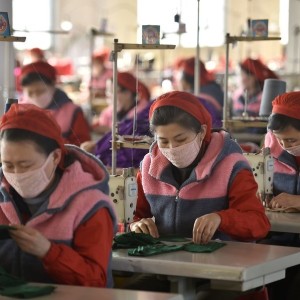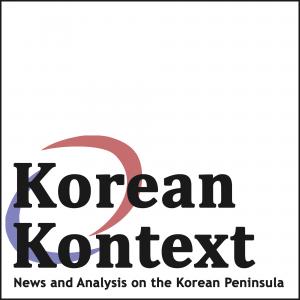
The U.S. Center for Disease Control announced this week that Americans should prepare for the coronavirus spreading in the United States. And in other parts of the world, the disease is already spreading quite rapidly.
At this time, many security analysts are waking up to the reality that there are countries less prepared to contain and treat this new infectious disease - these countries may become a weak link in the global chain to stem the spread of the disease and intensify the consequences of a pandemic.
In Northeast Asia, that country is North Korea - for its part Pyongyang is taking this disease seriously. Its response has been stronger than it had been against the 2014 ebola outbreak, the H1N1 outbreak in 2009, and the SARS outbreak in 2002-2003. It has been described by some analysts as “unusually high-profile."
So what might be aiding or detracting North Korea’s capacity to address this major threat? Our guest today, Dr. John Grundy, is a medical professional who has traveled to North Korea over 8 times and has visited remote locations to examine the country’s health systems. He joins us today to provide his take on North Korea’s public health capacity.
You can find Dr. Grundy’s 2015 paper covering the evolution of North Korea’s public healthcare system from the Cold War era to today, here:
http://keia.org/sites/default/files/publications/koreaseconomy_ch8_history_international_relations.pdf
Please also check out a rebroadcast of KEI's 2017 interview with Dr. Grundy on the history of North Korea's healthcare system:
https://www.podbean.com/media/share/pb-nkxr7-d45dff
More Episodes
 2019-11-15
2019-11-15
 800
800
 2019-11-08
2019-11-08
 929
929
 2019-11-01
2019-11-01
 960
960
 2019-10-25
2019-10-25
 833
833
 2019-07-19
2019-07-19
 1.7k
1.7k
 2019-07-05
2019-07-05
 978
978
 2019-06-21
2019-06-21
 895
895
 2019-06-07
2019-06-07
 814
814
 2019-05-31
2019-05-31
 837
837
 2019-05-24
2019-05-24
 843
843
 2019-05-17
2019-05-17
 912
912
 2019-05-10
2019-05-10
 804
804
 2019-04-26
2019-04-26
 812
812
 2019-04-19
2019-04-19
 746
746
 2019-04-12
2019-04-12
 912
912
Create your
podcast in
minutes
- Full-featured podcast site
- Unlimited storage and bandwidth
- Comprehensive podcast stats
- Distribute to Apple Podcasts, Spotify, and more
- Make money with your podcast
It is Free
- Privacy Policy
- Cookie Policy
- Terms of Use
- Consent Preferences
- Copyright © 2015-2024 Podbean.com






